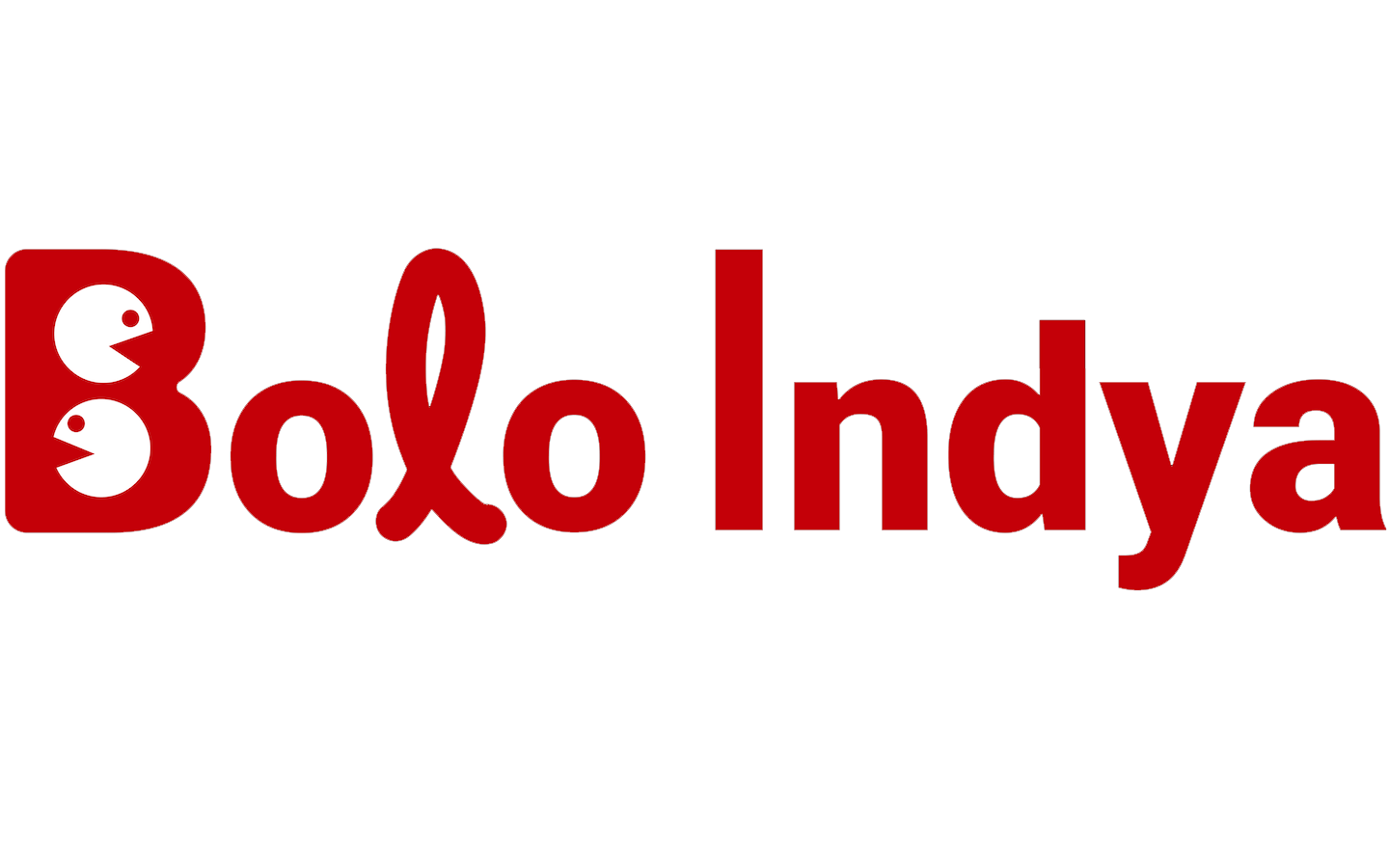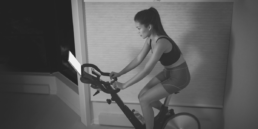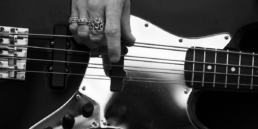Bolo Indya Partners with Audible Magic to Manage Licensed and Unlicensed Use of Music
New Delhi, 21 July, 2021: Bolo Indya, India’s first home-grown and most preferred social live-streaming platform, announced that it has partnered with Audible Magic, the leading provider of rights management and identification solutions. The partnership allows Bolo Indya to proactively manage both occurrences of licensed and unlicensed copyrighted media on their site.
Bolo Indya needed an identification service known for accuracy, ease of use and offered an extensive registry of music from around the world, including native music. Bolo Indya worked with Audible Magic to quickly deploy the scalable identification service to respond to the explosive growth in live streaming and short-form videos on their site.
Commenting on the development Varun Saxena - CEO and Founder, Bolo Indya said: “We are committed to providing industry-leading copyright solutions for user-generated content on our platform. This expanded solution will use Audible Magic’s robust technology to support the compliance and licensing of user-generated content on our platform. We are delighted to partner with Audible Magic to help us achieve our goal.”
Bolo Indya is the first of its kind indigenous live streaming platform and is off to a blazing start with a new redemption method, dual live streaming, and other features. Bolo Live, the live streaming capability by Bolo Indya has been embraced by many renowned organizations and personalities since its launch. In the past few months, the platform has witnessed some special moments on Live, including informational talks about COVID-19 by health experts, Hon’ble Prime Minister Narendra Modi talking to thousands of viewers through MannKiBaat, Ministry of AYUSH hosting International Yoga Day Live on Bolo Indya, interviews with celebrities, and record-breaking viewership.
Audible Magic provides proven solutions for platforms to protect their brand’s reputation while using music in user-generated content, streaming, radio, and downloads. Platforms can speed time to market by avoiding building the extensive systems needed to identify content, manage licenses, and ensure they meet their reporting and payment obligations.
Vance Ikezoye, President and CEO at Audible Magic: “We are pleased to help Bolo Indya to identify licensed and unlicensed use of copyrighted music proactively. The partnership leverages our strength in content identification technology, coupled with the trust we’ve built with rights holders.”
About Audible Magic
For more than 20 years, Audible Magic has innovated solutions to identify content, provide fulfillment solutions, manage rights, and monetize media. Audible Magic’s Emmy-winning automatic content recognition (ACR) technology powers billions of monthly transactions. The Silicon Valley pioneer is the trusted intermediary between major platforms and rightsholders (including labels, studios, distributors, publishers, and collectives). The company works with a wide range of platforms and rights holders, including Facebook, Twitch, SoundCloud, Dailymotion, Vimeo, NBC Universal, Universal Music Group, Sony Music Group, Warner Music Group, The Orchard, CDBaby, and DistroKid. For more information, visit audiblemagic.com .
About Bolo Indya
Bolo Indya is the fastest-growing social live streaming platform. Bolo Indya stands unique as it works towards empowering the next billion internet users of India, by allowing them to transform their social capital and virality into financial independence by unlimited earning every month. It brings to the table the amalgamation of short videos, local languages, UGC as a driver, and Passion economy as the fuel for empowering the internet users of Bharat, taking the penetration of peer-to-peer financial transactions to tier 2 and tier 3 cities of India.
The Bolo-Live streaming feature comes with an integrated real-time gamification in the form of a gifting option where creators can be rewarded by their follower base basis the content quality, density as well as engagement which can be redeemed in cash on the Bolo Indya platform.
Why is Music Such a Challenge for the Fitness App Industry?
The burgeoning Fitness App industry offers incredible workout experiences and a sense of community, but integrating music poses unique technical and licensing challenges.
The health and fitness app industry is growing leaps and bounds, with some predictions putting the market at US$ 18.7 billion by 2030. The growth is driven not only by better real-time data and equipment, but the worldwide pandemic is driving consumers to find a quality workout at home.
Combining high-quality equipment with classes is now a given for companies like Echelon, Hydrow, and CLMBR. These platforms strive to expand their offerings to their fan base with additional classes on and off the equipment - think yoga, strength training, and Pilates.
Instructors with a worldwide reach on these platforms are gaining almost cult followings. Participants accessing either a web streaming or an on-demand class expect an experience that delivers a workout and a sense of community and emotional connection.
Music: Got to have it
The underpinning of the experience is music. It sets the mood, drives the workout, and becomes part of the instructor’s brand. Class reviewers talk equally about the instructor and their choice of music-many reviewing the playlist before choosing a class.
Instructors who understand this build their class around music, whether it is an hour of EDM, 80s greats, or Miley Cyrus. A large catalog of premium music enables continued class creation and engagement. Recognizing this new vertical for music, record labels are partnering with platforms to create remixes and break new artists.
So, accessing music for these platforms is key to their business. The challenge is getting licenses and handling the overhead of administering the licenses.
Licensing: Infrastructure, Infrastructure, and More Infrastructure!
One of the first major hurdles that a platform needs to consider when approaching record labels is proof of technical competency.
Record labels and publishers want assurance that the platform can effectively manage their catalogs while also reporting and paying accurately. Unfortunately, these systems take a lot of licensing expertise, time, and technical resources to build.
The quickest way to move licensing negotiations forward is to partner with an experienced and full-service digital music management vendor before engagement. This service provider will often have the trust of the record labels, access to the masters, sub-licenses, and proven systems for:
- Receiving the music and continuous updates from the labels
- Identifying content to ensure appropriate use
- Linking the sound recording to the musical composition to clear tracks for use, and ensuring proper payment to the publisher(s)
- Reporting and Payments
Very few will provide all those functions, but those who do will make vendor management a lot simpler.
Licenses for Live Streaming and On-Demand
Generally, fitness platforms provide live-streamed classes which may or may not be stored, and they offer on-demand classes. Therefore, in consultation with a music industry expert or lawyer, these platforms will need to obtain appropriate licenses from labels, publishers, and collective management organizations (CMOs) covering the territories they will operate in.
Once they have secured licenses, the platform will have technical and service requirements to ensure only licensed tracks are used and to meet their ongoing licensing obligations as listed below:
- Establish an extensive catalog with matched sound recordings to musical compositions
- Host an approved catalog for use by instructors
- Identify licensed and unlicensed tracks using content identification technology
- Reporting, royalty administration, and payments to rights holders
It is hard enough to administer hundreds of thousands, and in some cases millions of tracks, but the difficulty increases trying to keep up with the continuous changes in catalog ownership. Platforms will need to identify tracks in their current on-demand classes and possibly replace songs when ownership has changed.
One can see that a platform hosting both live-streaming and on-demand classes will have many licensing obligations and will need a partner to help manage the process.
Let Audible Magic Help Manage Music on Your Platform
Audible Magic enables platforms to focus on growing their business by providing world-class proven music management solutions, including:
- Licensing Support - Understand what is cleared and not cleared.
- Fulfillment - Deliver cleared music to your platform now
- Content Identification - ID & track music on your platform
- Royalty Administration and Payment – Royalty reporting and payment to labels, publishers, CMOs and PROs
This blog is issued for informational purposes only and is not intended to be construed or used as general legal advice.
Is The MLC Part of Your Overall Licensing Strategy?
The Mechanical Licensing Collective (MLC) continues to make strides in building its new team and has already begun to receive payments from digital service providers (DSPs). It is great to see the progress in a much-needed organization that will help simplify license administration for rightsholders and DSPs in the United States.
Some may be unclear about the scope of The MLC in the complete context of all of the rights required to distribute music. All entities that use music, whether on streaming sites, social networks, workout platforms, or yes, even permanent download stores, need to understand if The MLC fits into their overall licensing strategy or not.
What is The MLC?
The MLC is an organization born out of the Music Modernization Act of 2018 (MMA). The MMA updated how mechanical rights in musical compositions are licensed for music streaming and download services. Previously, under Section 115 of the U.S. Copyright Act, DSPs downloading or streaming music could use a compulsory license to license the mechanical rights in musical compositions made available through their services. Using this type of license, a music user would be required to license each musical composition on a share-by-share basis and to provide notice reporting and payments to publishers, administrators, and self-administered songwriters, composers, and lyricists. With the massive volume of music these platforms host, the process was challenging to say the least.
Under the MMA, qualifying DSPs in the United States can elect to secure a blanket mechanical license for music for streaming and downloads. The MLC was created to administer this license, and all DSPs which obtain the license send a monthly report and payment to The MLC. The MLC will then disburse payments and reporting to the publishers who have registered on The MLC portal.
The establishment of The MLC will provide greater clarity, licensing certainty, regular reporting, and accountability, all of which will help both the music industry and the platforms.
The MLC is Only Part of the Overall Licensing Solution
The responsibilities of The MLC are laid out in Section 115 of the U.S. Copyright Act and were designed to meet a specific need for administering rights for music audio between publishers and DSPs for downloads and streaming. Considering what The MLC does not cover brings to light what additional steps a digital platform may need to take to be fully licensed.
Record Label Deals:
The MLC administers a blanket license for the mechanical rights in musical compositions required for a service to offer downloads and streaming music. Platforms will still need to license, report, and pay royalties to the record labels for the use of the sound recordings in which these musical compositions are embodied.
Location:
The blanket license administered by The MLC is only available for services made available in the U.S. If a DSP is downloading or streaming music outside the United States, it will need to ensure it has licenses to use the music (both the sound recordings and the musical compositions) in those territories.
Types of Licenses:
The MLC does not administer any other types of licenses or royalties besides the blanket mechanical license for streaming and downloads, and voluntary licenses for the same covered activities. Licenses The MLC does not administer include:
- Public performance licenses
- Synchronization licenses (audio tied to video)
- Sound recording licenses
- Licenses for physical products such as CDs
Licensing Examples – What is covered, what is not:
Let’s look at a couple of fictional music hosting platforms and what they should be thinking about in their licensing strategies. You should consult with an experienced music licensing professional such as a music lawyer or advisor when developing your own licensing strategies.
A medium-sized social network hosting user-generated videos with music in the US and the European Union: The blanket mechanical license from The MLC is designed to address platforms downloading and streaming music. This type of license covers audio, but not audiovisual. Thus, it does not address any music use occurring in a user-generated video. The DSP would have to have direct licenses with the label and the publisher. In addition, the social network is doing business outside the United States and will have to consider how they will license music in multiple territories with both publishers, music rights organizations, and labels.
A medium-sized music streaming service providing interactive music streaming in the United States: Such a service would be eligible for a blanket mechanical license under Section 115 of the U.S. Copyright Act. The MLC would administer the license, and the DSP would report and send royalties to The MLC. The DSP would also need to obtain a license from, and report and pay royalties to the performing rights organizations for the public performance rights in the musical compositions and the record labels for rights in the sound recordings.
Although The MLC’s scope is not all-encompassing, it does cover one of the more common ways recorded music is made available in the United States today and is a step in the right direction in managing the challenges of music license administration. However, for those hoping to host music on their platform, whether for streaming, downloads, fitness apps, gaming, or UGC, companies need to have a complete licensing strategy in place.
The team at Audible Magic will continue to monitor The MLC’s activities and hope to provide more information in the future. In the meantime, check out the resources below.
- Music Modernization Act: https://www.copyright.gov/music-modernization/
- The MLC: https://www.themlc.com/
Audible Magic – Powering Music Online
Leveraging our fully rights-managed catalog of over 100 million tracks, Audible Magic enables platforms to use music via our comprehensive licensing, fulfillment, identification, and rights administration services. Our bespoke scalable solutions enable the use of music in a myriad of use cases including UGC, downloads, streaming, and radio.
This blog is issued for informational purposes only and is not intended to be construed or used as general legal advice. Please contact the author(s) or your Audible Magic Corporation contact if you have questions regarding the currency of this information.
Twitch is Working on a Way to Delete all Clips More Easily
Over the last week, numerous Twitch streamers have been hit with DMCA takedown notices for copyrighted music, with some being targeted for years-old clips. In response, Twitch said it is creating the ability for streamers to delete all of their clips more easily as a way to avoid getting a copyright strike. The platform also said it will use Audible Magic a long time provider of automatic content recognition (ACR) services to Twitch to scan existing clips with copyrighted music and delete those without penalizing the streamer.
Read more here.





